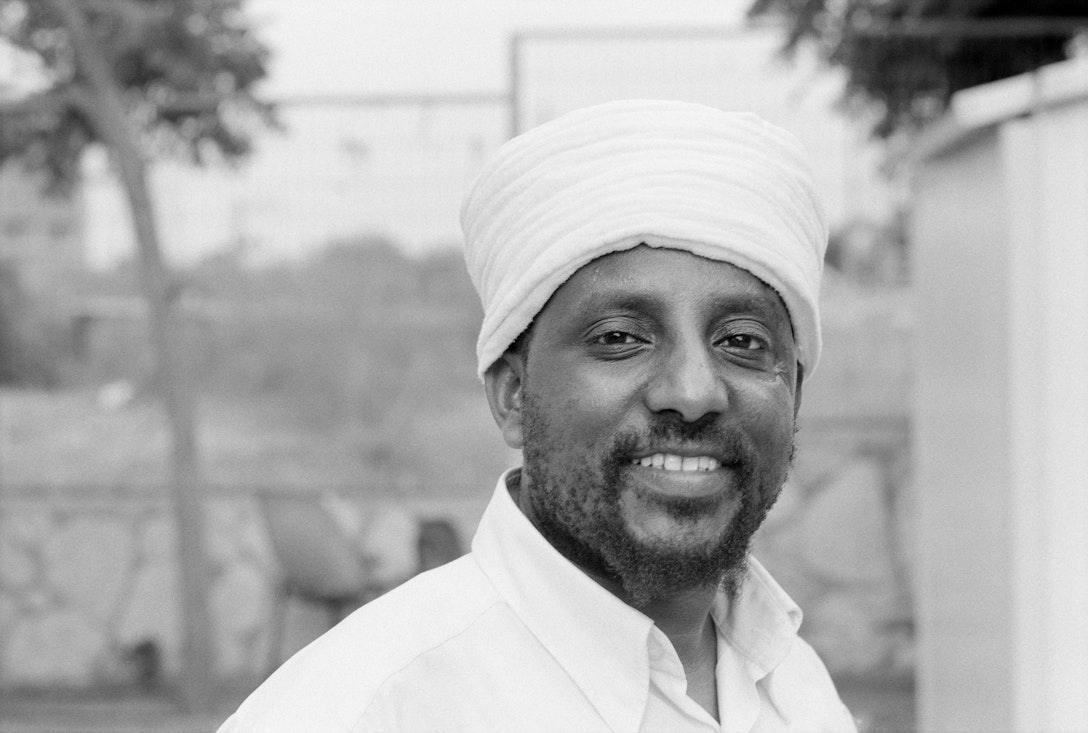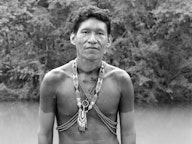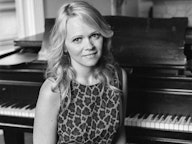
Kes Samai Elias
Rishon LeZion,Israel
PRAYING FOR A MIRACLE
When we got to Sudan, there were 35,000 refugees. We didn’t know anything, nothing about Aliyah. We prayed to God for a miracle. After eight months, we ran into a Red Cross worker who knew the Israeli workers. The Israeli had the Mossad in Sudan and we met through them the right connections. The Mossad employed Ethiopian immigrants. The Mossad put in an airfield, and at night they would send army craft to us for flight. So they landed the Hercules transport and we flew to Israel. There were 70 people on our plane.
Daniel’s Reflection
Samai Elias is a kes, an Ethiopian rabbi, who left Ethiopia and travelled to Sudan where he and 90,000 other refugees were airlifted to Israel. This is a story that never ceases to amaze me. While these circumstances are different from the Syrian refugee crisis of 2019, it makes me wonder what it’s like to need to flee your homeland and pray that you will be helped. The Ethiopian Jews were saved because of their historical connection to Judaism, and the existence of the modern State of Israel. Samai’s situation was controversial because the Sephardic chief rabbi accepted them as the lost tribe of Dan, but the chief Ashkenazic rabbi did not—although he reversed his decision years later. At issue was the Ethiopian Jews’ practice of biblical Judaism rather than rabbinic (post-Temple) Judaism.
Kes Samai Elias is a very humble man whose own father was the kes of his community before him. He speaks of his multi-year journey from Ethiopia to Sudan to Israel all on foot and without much fanfare, although it must have taken a lot of faith to stay on that journey. Their family experienced an unexpected death that caused them to stay in one place for a month to observe the shiva and the shloshim periods of mourning.
For two years they did not travel further from their location in Ethiopia to the border with Sudan because they heard that people were being taken into slavery or killed. After two years they decided that the purpose of their journey was to be in Israel, so they pushed forward. It was only by accidentally running into a Red Cross worker that they found their way to the Mossad agents who were setting up transports to Israel. What a miracle this journey truly was, and it is a blessing to know that Kes Samai Elias has led an Ethiopian community in Israel for over 20 years.
It raises many questions for us about Syrian and other refugees. Who should be raising their hands first to take them in? The Muslim countries of the Middle East? Israel, where so many refugees of World War II, from the Soviet Union, and from Ethiopia now live? The Christian dominant countries of Europe and the West?
The situation reminds me of a lesson from the Talmud about a character named Nachum of Gamzu. We are taught that many problems came to Nachum of Gamzu because he was fond of dismissively saying, “Gamzu le tova,” meaning, “this is also for good.”
Once he was traveling on a donkey and saw a dying man who asked for help. Nachum of Gamzu said, “I will help you as soon as I get down from my donkey.” By the time he got down from his donkey the man had died. The lesson is that it is not our responsibility to determine if someone’s plea for help is real or not. Our job is to help them and God will decide in his judgement what is authentic and what is not. We cannot be the eternal optimist where we assume “this is also for good;” that all will be well, or that others will help out a person in need.
So, Kes Samai Elias’s story reminds me that I have to take personal responsibility for the current refugees, and I cannot assume that others will do it (even as I pressure others to do their part).
Explore the portraits by theme
- happiness
- grief
- addiction
- sexuality
- sobriety
- transgender
- alcoholism
- suicide
- homelessness
- death
- aggression
- cancer
- health
- discipline
- abortion
- homosexuality
- recovery
- connection
- enlightenment
- indigenous
- depression
- meditation
- therapy
- anger
- forgiveness
- Doubt
- interfaith
- worship
- salvation
- healing
- luminaries

